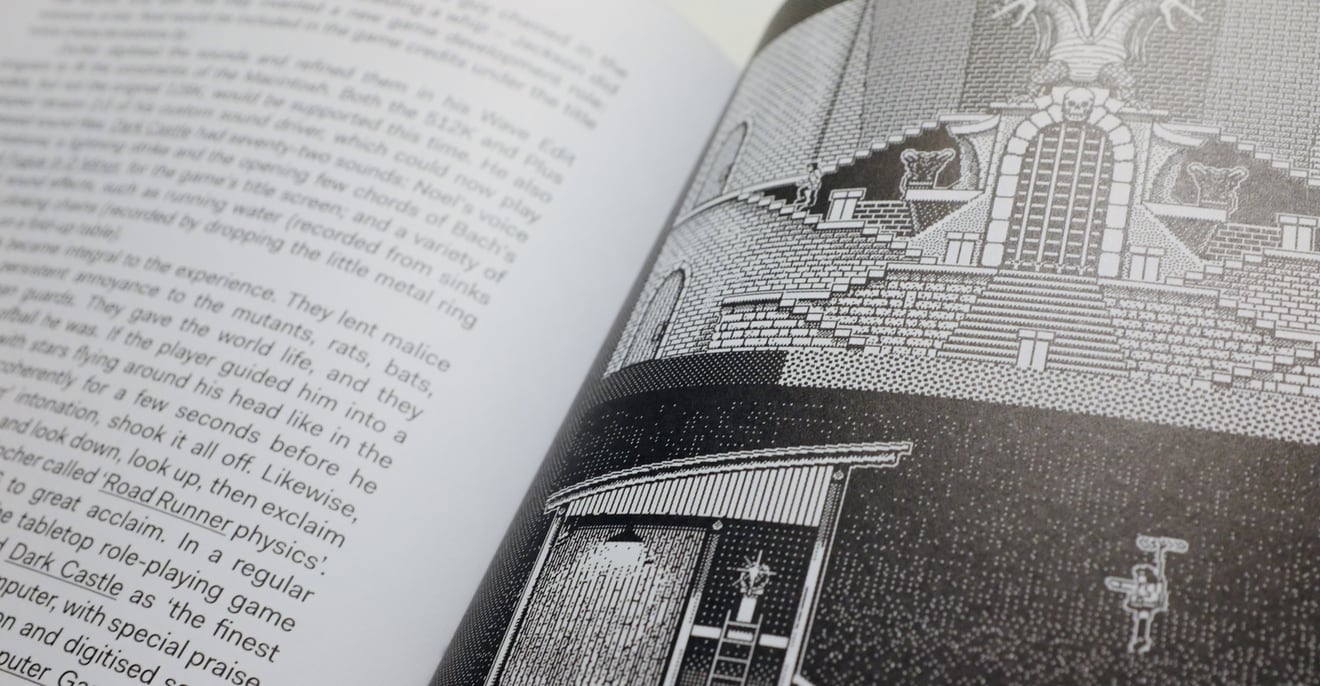The Secret History of Mac Gaming
Mac gaming seems like a niche topic. And it is. But I think those with even a casual interest in gaming history will enjoy this book, a compendium of the days when Mac-exclusive titles were a thing. It covers the influential blockbusters — Myst, SimCity, Marathon (the forerunner of Halo) — but also weird shareware hits like Snood.

I idled away many a night on our family Mac1 playing these games. My favourite was Escape Velocity Nova. It’s a capable space trading sim, but what captivated me was its modding affordances. You can edit minor details like planet names, or you can put together a whole new universe and storyline. I never made it far with my efforts, but tinkering with EVN piqued my interest in programming which led to my career in software development (with that software occasionally of the game variety).
Through EVN I stumbled on the Ambrosia Software forums, my introduction to Internet culture. Ah, the days before Reddit, before social media, when phpBB was cutting edge and it was cool to have a username like XxFragNinja88xX.2 Does this make me sound old? It does, doesn’t it?
One curious omission in Secret History is the genesis of the Unity game engine. The Ambrosia Software chapter mentions Over the Edge Entertainment’s Mac-exclusive GooBall, but it neglects to call out that this flop was the genesis of Unity, which today dominates game development. It’s not itself a game, sure, but few other applications have had such an impact on gaming, Mac or otherwise. Its cross-platform prowess is arguably part of the reason that producing games solely for the Mac now makes little sense.
I first encountered Unity in its release announcement on Inside Mac Games. This was around the time I was learning OpenGL and struggling to move crude shapes around the screen. Unity blew me away. Create a few cubes, hit play, and watch them fall and bounce on the ground — astonishing. Hit pause, make adjustments, and see the game reflect your changes immediately — wizardry.
But enough about Unity, let’s talk Bugdom. I was thrilled to find out that the source code for it and other Pangea Software titles are available on GitHub and updated to run on modern hardware. I particularly enjoyed the soundtrack to Bugdom, which you can listen to here. It’s a bop.
Nowadays I seldom turn to my computer for my gaming fix — my Switch and Playdate3 handle that duty — but I enjoyed this trip down nostalgia lane.
A Macintosh LC at first, then a Quadra 800, later that glorious transparent gumdrop, the iMac G3. It’s hard to convey how cool, how alien that machine was when every other computer was a beige box. ↩
This was not my username. Whoever XxFragNinja88xX is, I bet they’re a nice person. ↩
The Playdate, with its 1-bit black-and-white screen and thriving community of indie developers, reminds me of the heyday of Mac gaming. I’m having a ball with the quirky experiences people are building for this little yellow gizmo. ↩